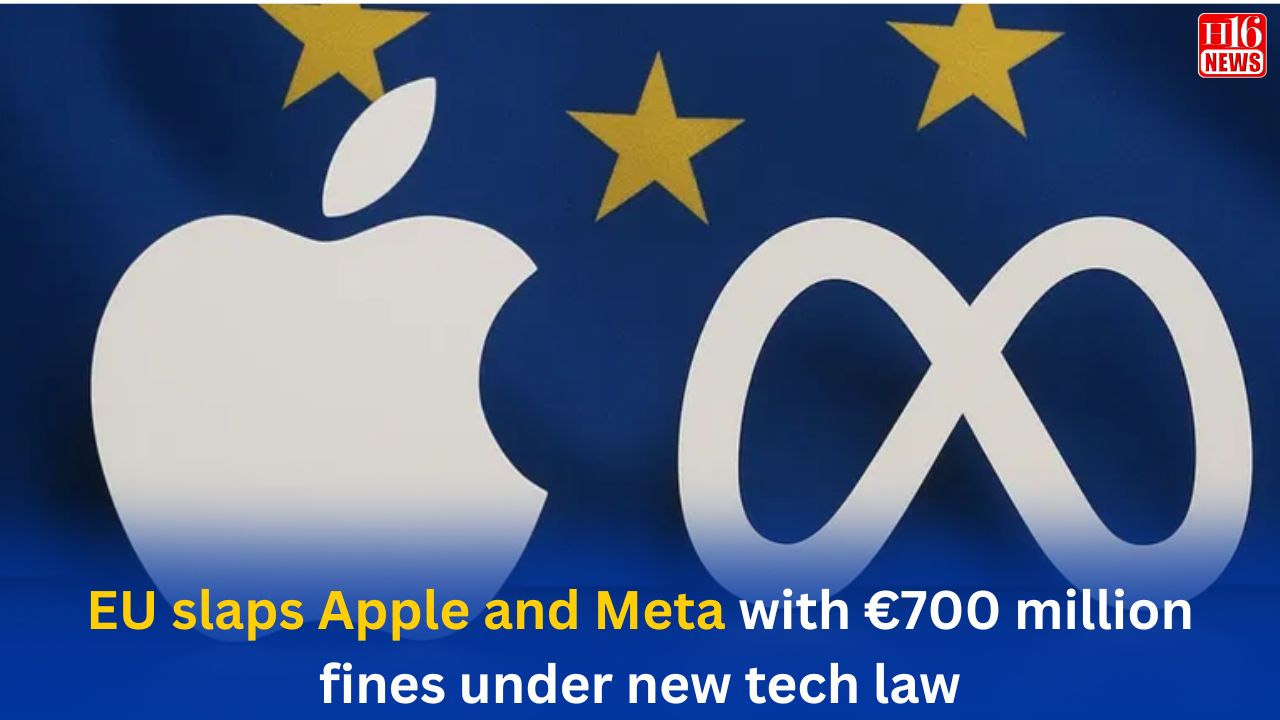EU slaps Apple and Meta with €700 million fines under new tech law
The EU has fined Apple €500m and Meta €200m under the new Digital Markets Act for breaching competition and data consent rules. Apple was penalised for restricting third-party app stores, while Meta's 'consent or pay' data model was deemed unlawful.
These penalties emerge during intensifying EU-US tech clashes which have escalated the existing transatlantic tech dispute. Meta declared that the EU was targeting successful American companies, yet Apple argued against being forced to give away its proprietary technology to competitors for free. EU Commissioner Henna Virkkunen explained the necessity of protecting European citizen rights and innovative business operations. The DMA imposes these fines which exceed previous ones because of their symbolic meaning under this law designed to create a fairer digital market structure.
According to European laws, the Digital Markets Act, the tech enterprises Apple and Meta must pay €700 million for their violations. The App Store anti-competitive behaviour of Apple resulted in a €500 million fine, while Meta received a €200 million penalty because of its user data policy. The EU executive branch known as the European Commission determined that these fines accurately represent the lengthy duration of violation combined with the serious nature of non-compliance by each company. These companies need to bring their practices into alignment with the law within 60 days or they will face added penalties.
Apple in hot water over App Store monopoly
Apple received the fine because it rejected enabling multiple app stores to enter its App Store marketplace. Apple faced European Commission rules which declared its restrictive system compromised the market because it provided excessive control to Apple while obstructing innovators along with app developers and users. The DMA forces Apple to enable third-party app stores, yet the company claims this policy would compromise privacy levels and device safety measures. Apple issued a stern objection to the Commission after it accused the institution of changing its demands during the talks while charging that the new ruling impairs its ability to defend users while preserving product quality.
Meta’s ‘Consent or Pay’ model deemed unlawful
A new period of intense regulatory control over Big Tech companies has officially started in Europe. More companies will face penalties after the EU implements the DMA because of their non-compliance. The worldwide operation of digital services might undergo significant changes because of these developments.
According to Delano, the main issue in Meta’s case concerned how the company managed data from Facebook and Instagram users. As part of its new agreement, users faced a choice to either accept cookie tracking or pay for a subscription. According to the Commission, the model created by Meta breached fundamental rules regarding free consent in European data protection regulations. According to Meta, the court’s decision establishes a ‘multi-billion-dollar tariff’ for their operations while giving European and Chinese companies an unfair advantage. User rights remain a priority for the EU even though it upholds their protection against commercial gain.
Read More:

